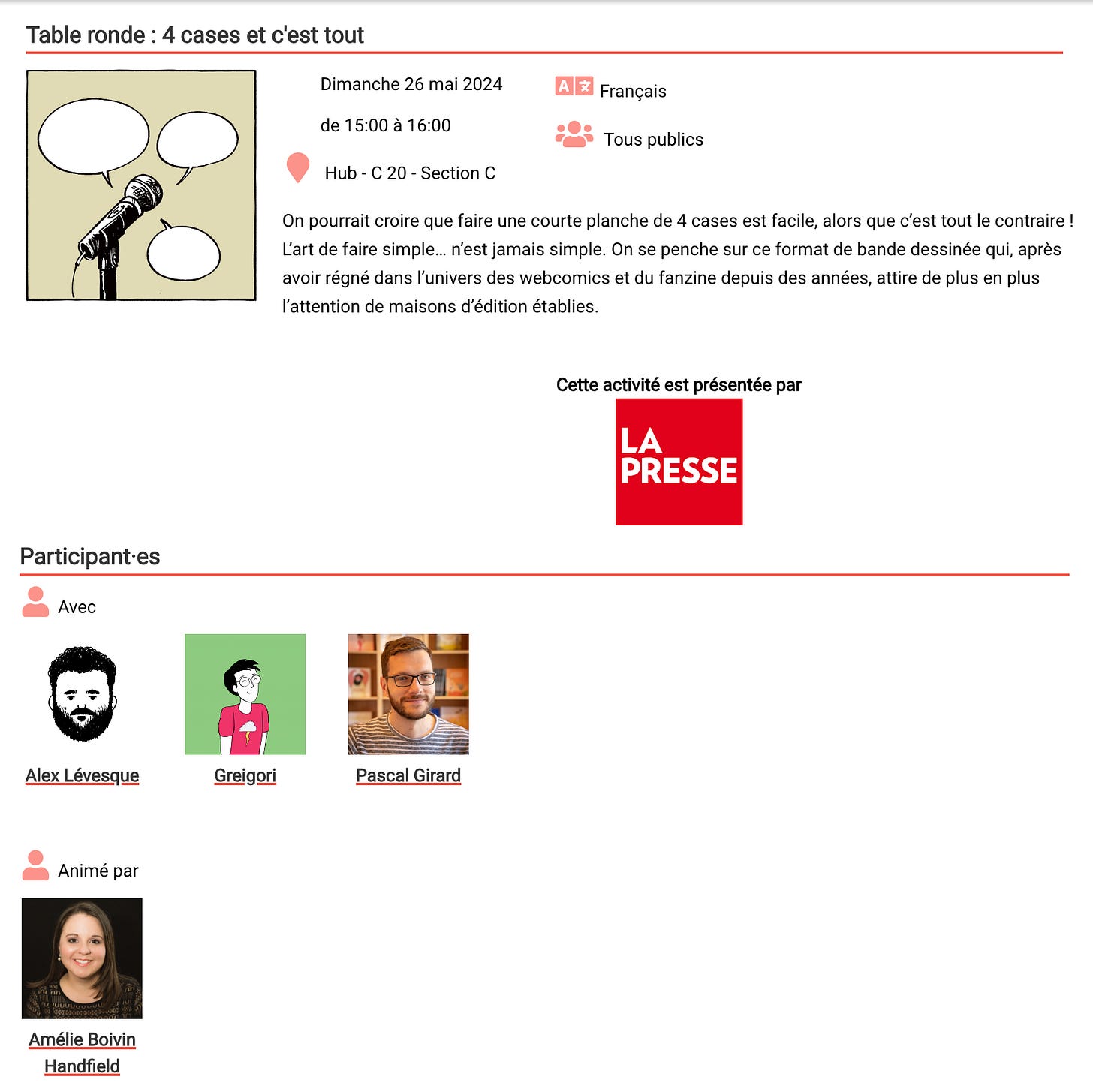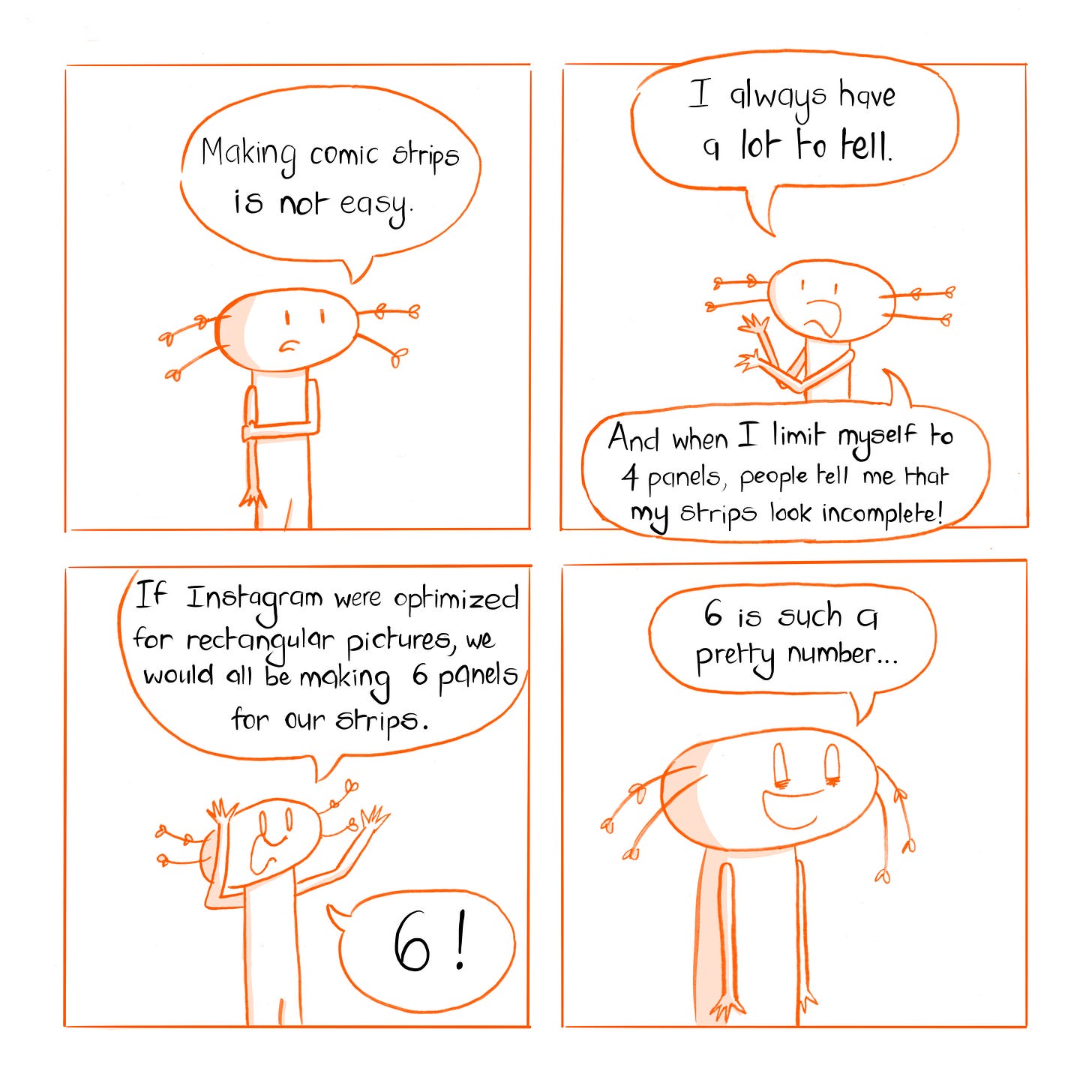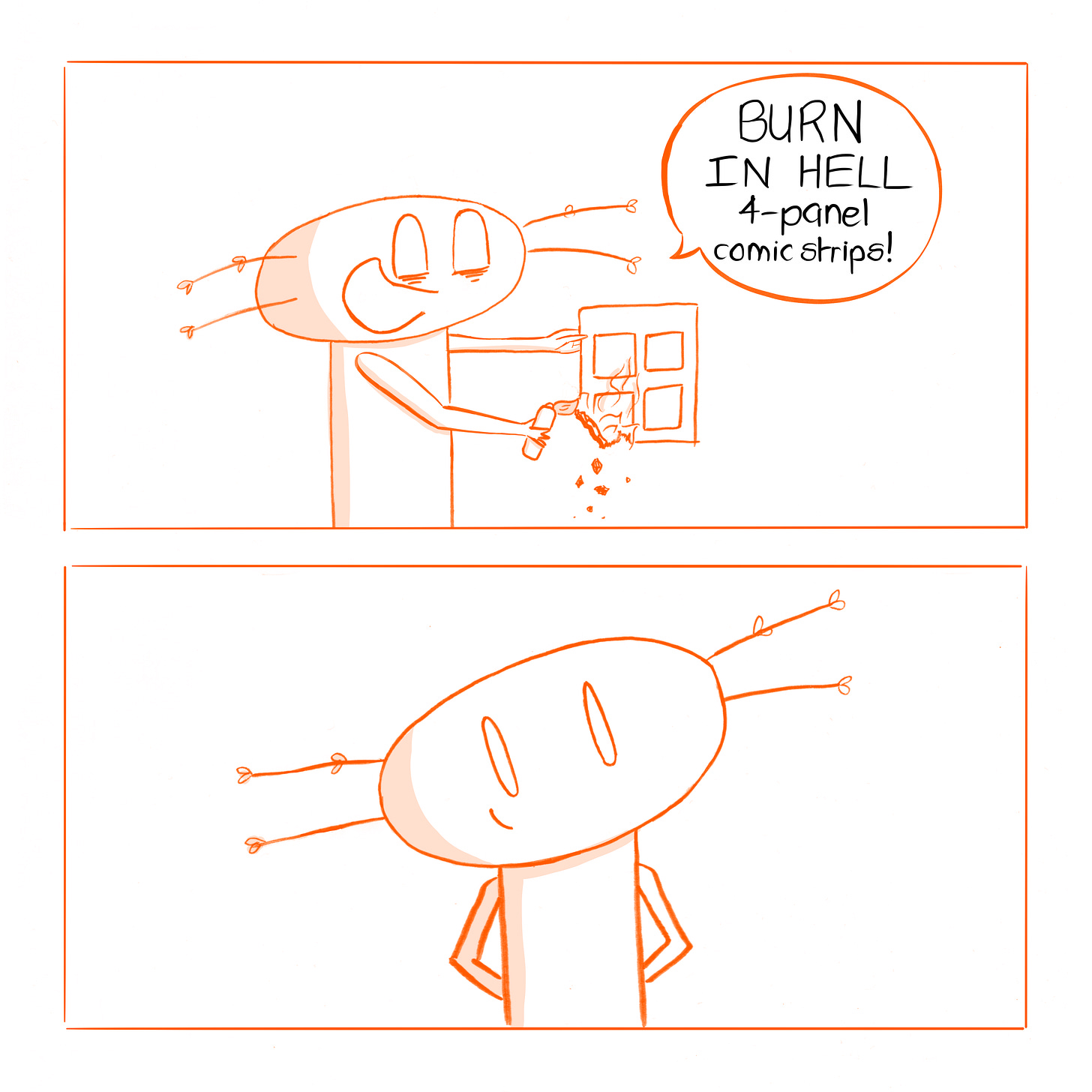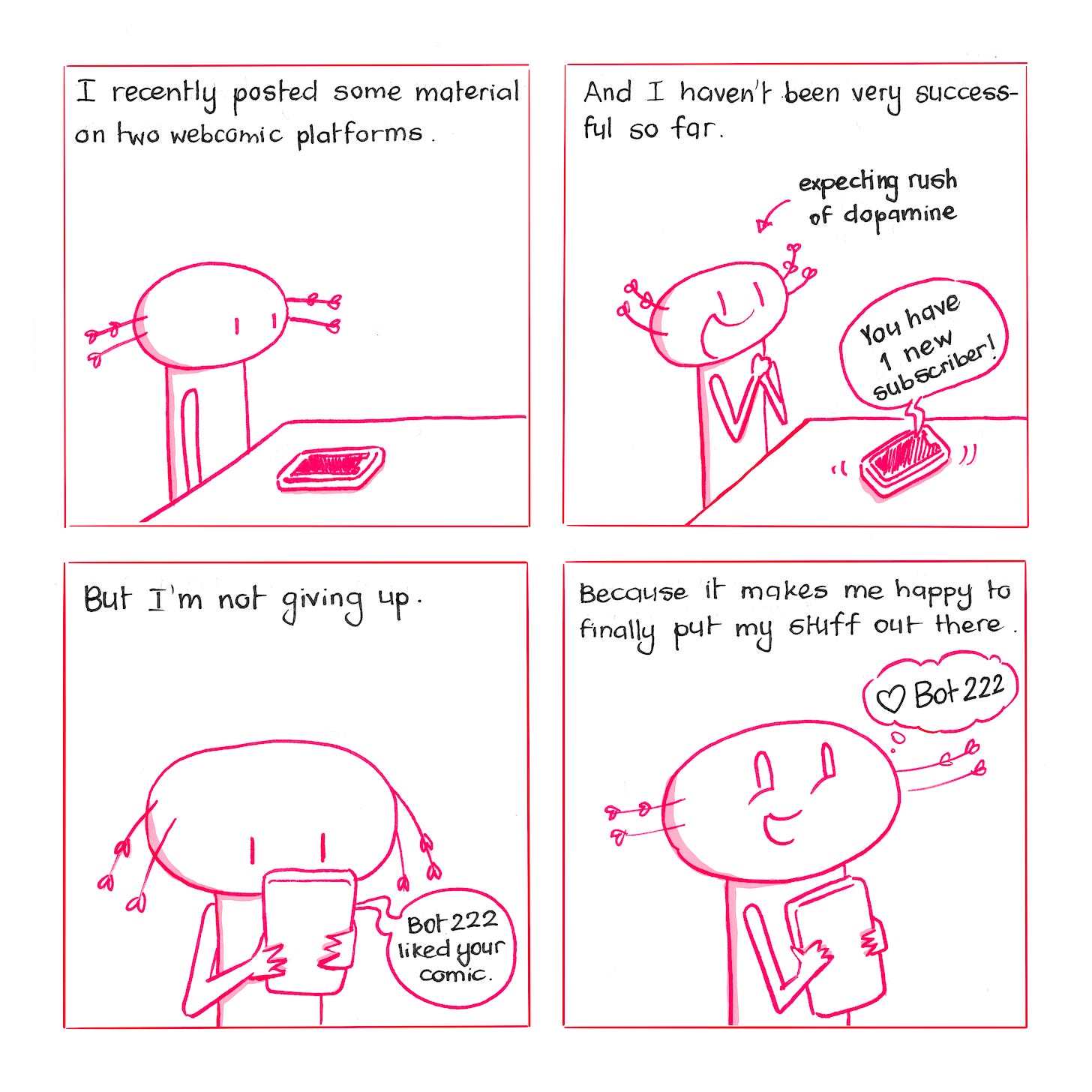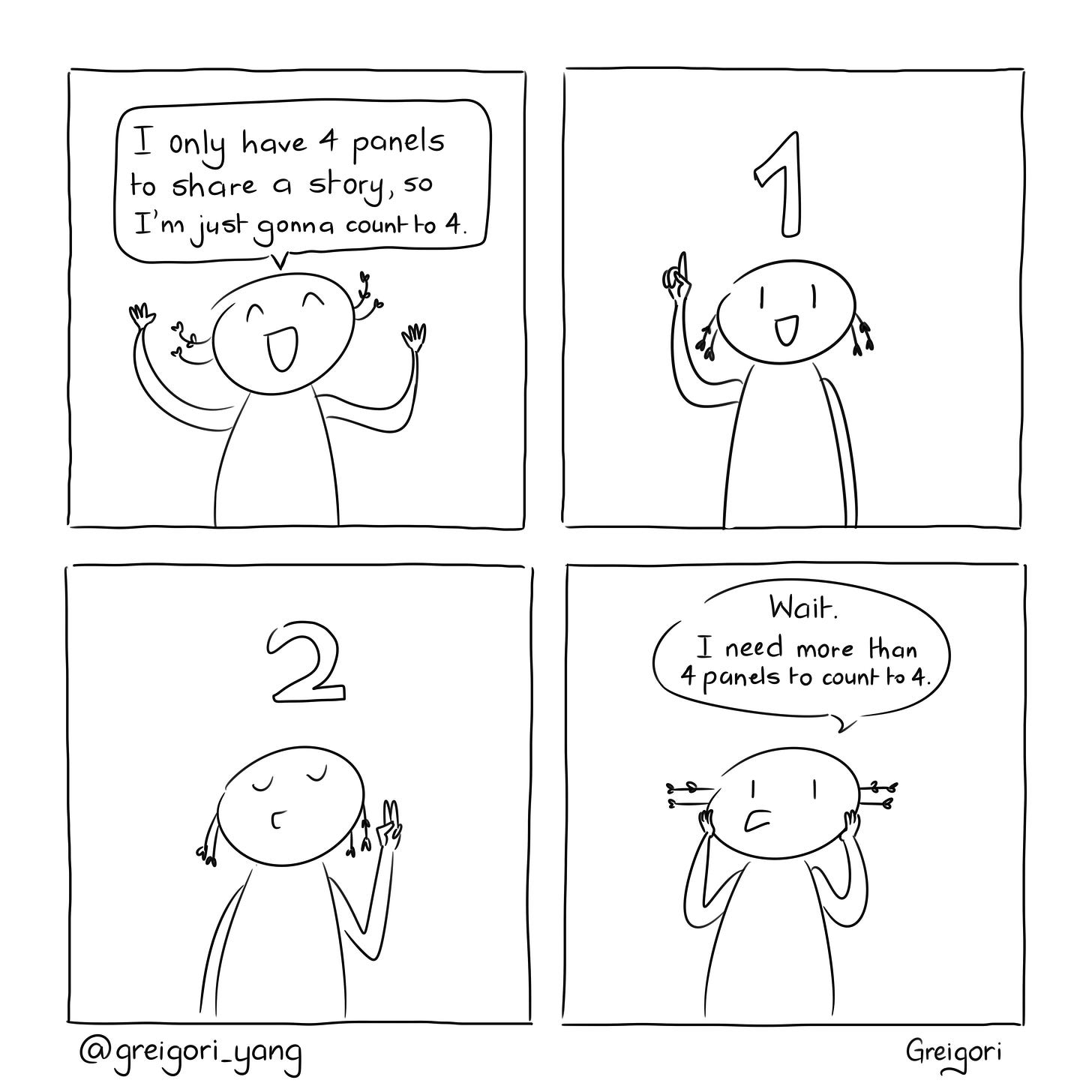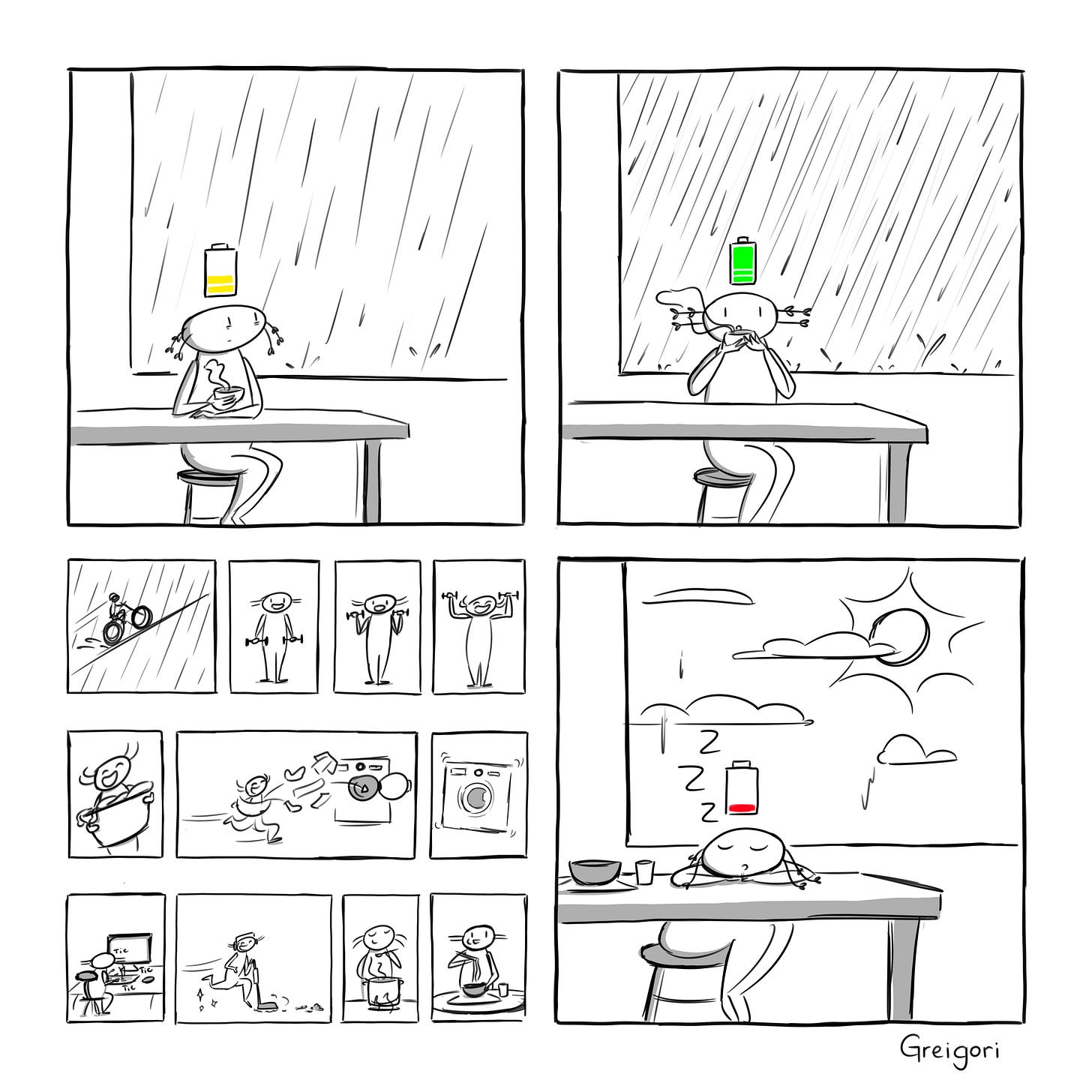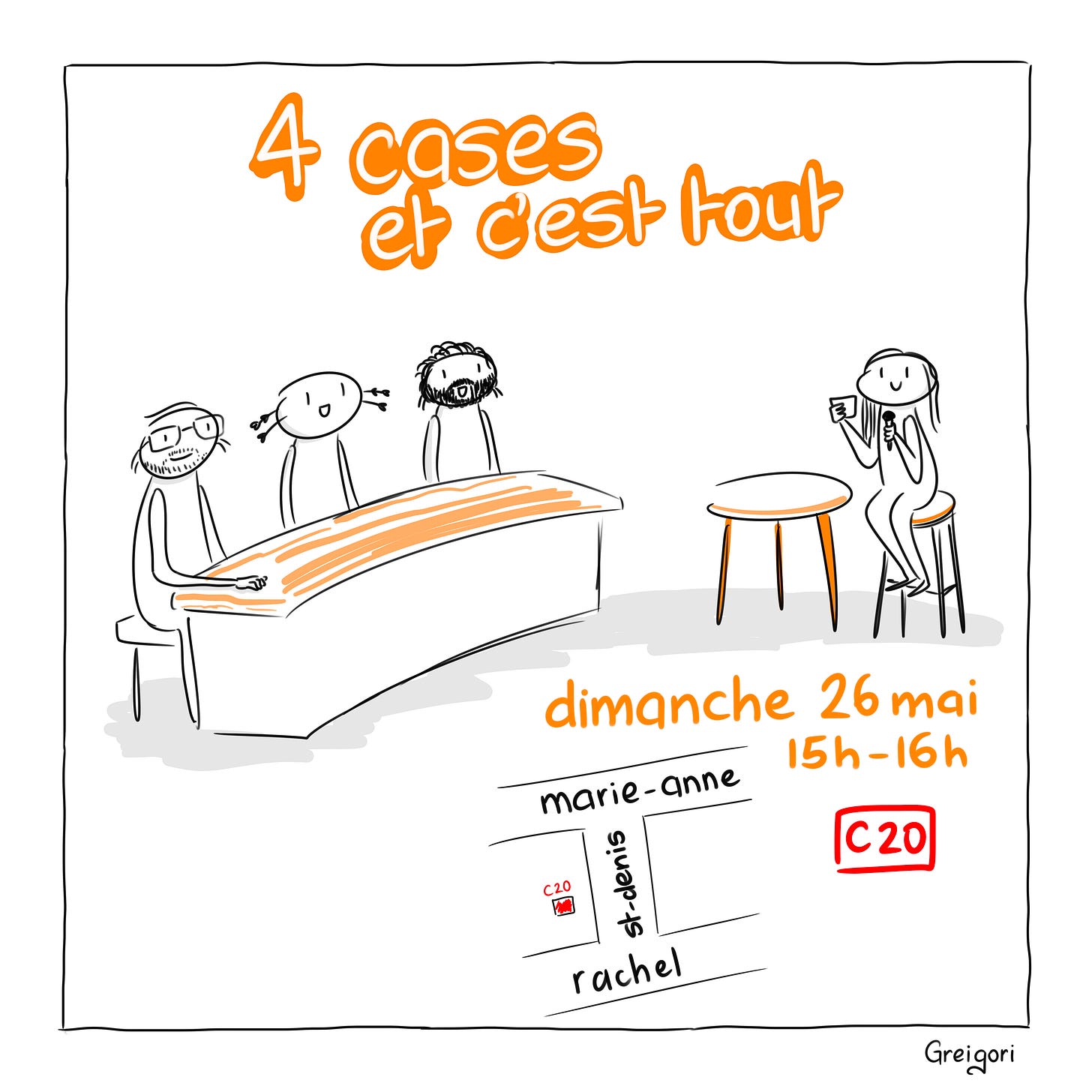Four-Panel Comics
👑 On my experience with short comics and how it led to my very first book
The Festival BD de Montréal (FBDM) / Montreal Comic Arts Festival (MCAF) is next weekend, and I have been given the amazing opportunity to be on a panel!
It’s about four-panel comics, which I have a lot of experience in. But it’s gonna involve talking about my work in public, which I have no experience in. So I feel like I have to prepare a lot for the event. And since the moderator expects me to present my work, I decided to write a little memoir of my 6-year long “career” in comics.
How I started
“You should post your comics on the Internet!,” said Zviane, my favourite comic artist. The one and only who inspired me to make comics. “OK!,” I thought, starstruck. That was at the Salon du Livre de Montréal in 2018.
While I was already familiar with four-panel comics on Instagram, I had never written a comic shorter than 20 pages before. So my first post on the Internet was…
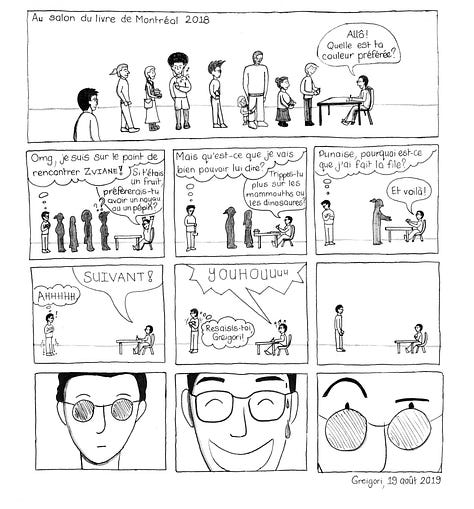
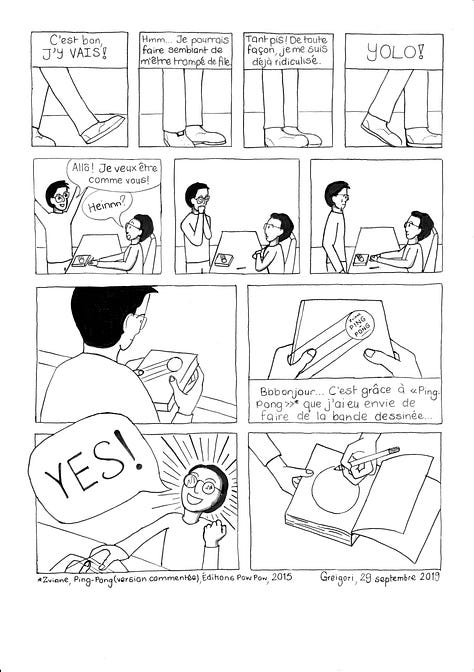
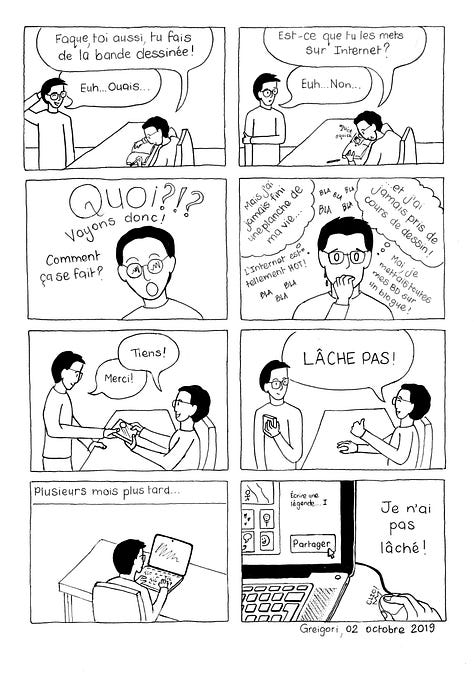
29 panels long 💬💬💬💬💬💬.
My very first four-panel comic happened only months after my debut on Instagram. And this was shortly followed by frustrations about being so limited in space.
Comic strips have been around forever, so Instagram has not completely reinvented the wheel. In newspapers and magazines, strips can be limited to maybe a column. On Instagram, they are limited to a square.
I generally prefer making longer comics, but they don’t really fit in the square imposed by Instagram. And they take forever to draw, so trying to build an online presence with them is not sustainable. To post material more frequently, I therefore pushed myself to make shorter comics. I think I have become quite decent at making them, drawing inspiration from anything I do everyday.
Four-panel comics are like solving a puzzle. I usually find the beginning and ending fairly easily. The difficult part is finding the perfect way to connect them with just two panels. And come to think of it, I am not sure if I always enjoy the process. It comes with a number of frustrations.
Frustration 1: Short comics can take forever too.
Making a seemingly short four-panel comic often requires several iterations. Sometimes, a comic might be super clear to me, but it doesn’t guarantee that it will be super clear to a majority of people. So when my favourite proofreader Étienne doesn’t get it, I usually assume something is off. And it can take up to 24 hours for me to make it right. That’s a lot of time dedicated to just one “seemingly short” comic whose fate is likely to just be skimmed. Also, more time spent on a comic does not always result in more success.
Frustration 2 : Personal satisfaction is often minimal.
I usually get a rush of dopamine from all the positive comments garnered by a successful comic. It’s beautiful while it lasts, like finding a lime-green candy among all the less interesting colours in a bag of skittles. But the good feelings are temporary, and successful comics on the Internet do not necessarily lead to more following or visibility. They also will almost never get you noticed by your favourite publishing houses (except under extremely1 rare circumstances).
Frustration 3 : Little room for development
I think the main challenge with shorter comics is choosing what’s important to mention. Breaking down actions is my favourite thing, so sometimes I feel rebellious.
I also realize my mind works differently when I work on a strip versus a long comic. It takes me a while to switch from one form to the next. Sometimes, I can go months without having inspiration for a strip while I work on longer comics. For instance, I haven’t posted any four-panel comics since January, which is when I started working seriously on the longer comics for my next book.
The Good
And yet—despite the frustrations, I do like four-panel comics. They made me become a better artist. I am getting close to 100 four-panel comics drawn in the span of 6 years. If I average 4 hours per comic, it means I spent at least 400 hours practising my drawing skills.
And how would I be inspired for my own art if I did not read comics by Nathan Pyle (Strange Planet) and Sarah Andersen? Both always seem to find clever and captivating ways to solve the four-panel puzzle. Both have the wholesomeness, cuteness and subtle humour I aspire to in my work.
Also, the rush of dopamine from achieving a successful comic on the Internet may be temporary, but I am addicted to it and it feels good. I want more dopamine, more!
Most importantly, if it weren’t for four-panel comics, I’d still be years away from publishing my first book.
Little Hassles / Petits tracas
In 2020-2021, I was hard at work on two graphic novels: Flavoursome Stories / Victuailles à volonté, slice-of-life comics inspired by food, and La hacienda de Natashquan, a telenovela set on the Côte-Nord of Quebec. Both (of course) were taking longer than expected, so my goal to release them at my very first convention/expo in the summer was unrealistic. That is how I decided to combine my online comics to make a book. It would be easy and fast, right?
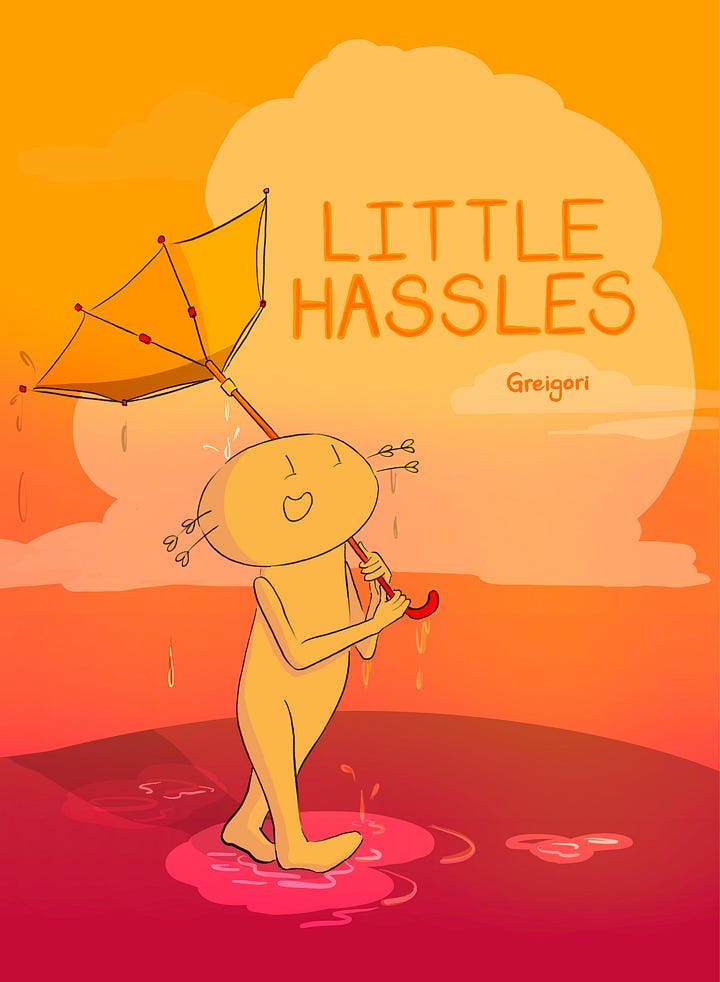
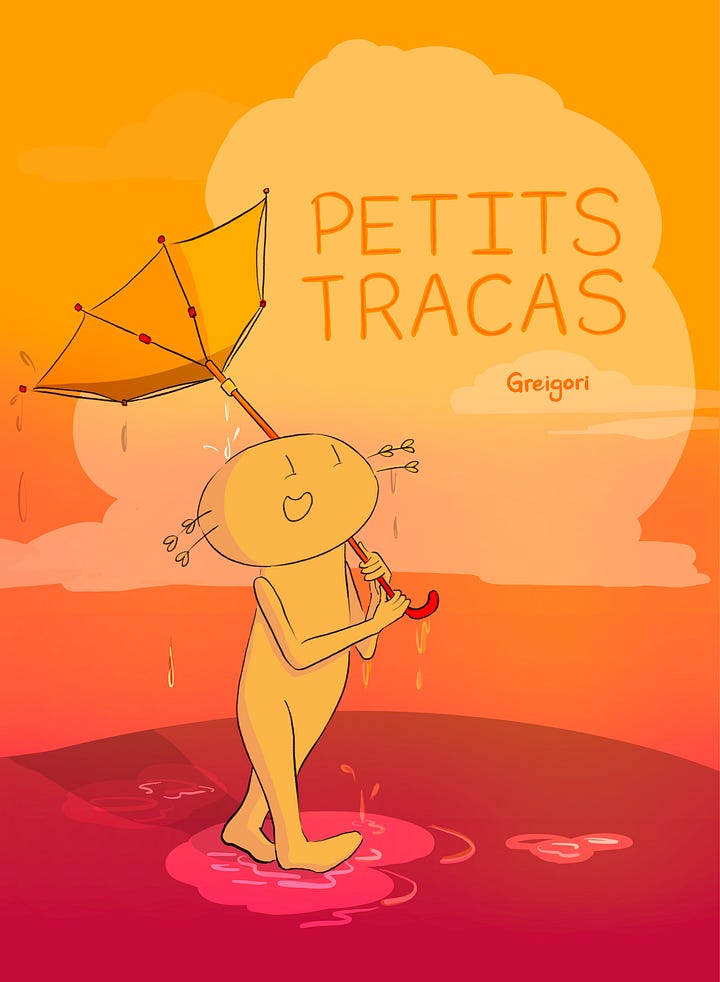
It still took my entire 6 weeks off work to complete the project. 🥲
Little Hassles and Petits tracas thus became my very first self-published books. Cute, nostalgic, slice-of-life comics with the aim of making the reader smile. All stories are 1 to 3 pages long. And in addition to the comics I posted online, the books contain a few exclusives because I really wanted to make them more special than just a collection of old material. Plus, that’s two books, not one. The reason being that half of the stories were originally written in English, the other half in French. A coworker once asked me if my thoughts were in English or in French. And the answer was… both, I guess?!
So here are the books that weren’t supposed to take me a long time. The books that were supposed to be a preview of better, bigger projects. The books that became the centerpiece of all the festivals/cons I’ve been to since 2021. The books that made me want to keep making 4-panel comics. The books that led me to my very first invitation to a panel.
Thank you four-panel comics for the dopamine and opportunities.
One of my favourite publishing houses in the comics sphere have always had the following sentence on their submissions page: It is extremely rare for us to consider submissions sent by mail.


